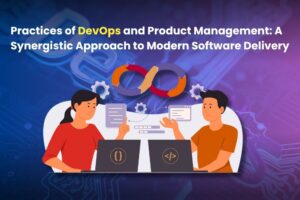The smooth integration of software development and operations has emerged as a crucial component of organizational success in the rapidly evolving world of contemporary technology. The DevOps frameworks are a revolutionary method that tackles the difficulties between these two fields by encouraging cooperation, optimizing procedures, and cultivating a culture of common goals. By removing obstacles to communication and focusing on shared objectives, DevOps frameworks create the groundwork for improved collaboration and efficiency.
Adopting DevOps may promote continuous improvement, enhance quality, and speed up software delivery. In addition to addressing interaction, cooperation, automation, monitoring, and feedback loops, these frameworks also include cultural, technical, and process-oriented elements. DevOps provides businesses with a roadmap to an Agile and collaborative approach, facilitating the shift from conventional processes to a more efficient future. To obtain
Understanding DevOps Frameworks
DevOps frameworks provide structured methodologies and best practices to help organizations implement DevOps principles effectively. These frameworks offer guidance on improving collaboration, automating workflows, and fostering seamless communication between development and operations teams. Organizations may improve quality, spur ongoing innovation, and speed up software delivery by implementing a DevOps architecture.
At the core of DevOps frameworks are three fundamental elements: culture, collaboration, and continuous improvement. Let’s explore each of these in detail:
Culture
DevOps promotes a culture of cooperation, openness, and information exchange. It breaks down silos between teams, promotes trust, and encourages open communication. By embracing a growth mindset and learning from failures, teams create an environment that supports agility and innovation.
Collaboration
Close cooperation between cross-functional teams comprising developers, operations engineers, and other stakeholders is essential for the successful deployment of DevOps. This approach eliminates unnecessary handovers, reduces delays, and ensures that everyone works towards common goals, improving efficiency and workflow continuity.
Continuous Improvement
DevOps drives continuous improvement by optimizing processes, automating repetitive tasks, and leveraging key performance metrics. Feedback loops, retrospectives, and continuous integration and delivery of CI/CD enable teams to iterate quickly, improve system reliability, and enhance overall performance. Through the integration of these components, DevOps frameworks establish a setting in which teams can effectively produce high-quality software while also learning new things on the fly.
To become an Expert in DevOps check DevOps Training in Pune Course
Popular DevOps Frameworks
Numerous DevOps frameworks assist businesses in improving communication, automating operations, and streamlining procedures. Below are some widely recognized frameworks:
1. The Three Ways
This paradigm, which has its roots in Gene Kim, Kevin Behr, and George Spafford’s The Phoenix Project, is founded on three fundamental ideas: flow, feedback, and ongoing learning. It seeks to promote a collaborative and iterative improvement culture, streamline the software delivery process, and get rid of waste.
2. CALMS
A comprehensive approach to DevOps is offered by the CALMS framework, which stands for Culture, Automation, Lean, Measurement, and Sharing. It underscores the importance of cultural transformation, leveraging automation, implementing lean methodologies, measuring key performance indicators (KPIs), and encouraging cross-team knowledge sharing.
3. DevOps Kanban
Inspired by Kanban principles, this framework employs visual boards to track and manage workflow. It enhances transparency, limits work in progress (WIP), and helps teams identify bottlenecks, prioritize tasks, and optimize software development and deployment cycles.
4. Site Reliability Engineering (SRE)
While SRE is not exclusively a DevOps framework, it is often integrated within DevOps practices. SRE, which was created by Google, ensures system performance, scalability, and reliability by fusing operational best practices with software engineering principles. It focuses on reducing toil, automating processes, and improving incident response times.
5. SAFe (Scaled Agile Framework)
Although SAFe is primarily an Agile framework, it includes DevOps extensions that guide large organizations in integrating development and operations practices at scale. It helps align multiple teams and projects while maintaining consistency in deployment and collaboration.
6. DORA (DevOps Research and Assessment)
Four key metrics—lead time for changes, deployment frequency, change failure rate, and mean time to recover (MTTR)—are used in the research-backed DORA framework to measure DevOps performance. By doing so, organizations can determine their DevOps maturity and pinpoint areas that require ongoing improvement.
DevOps frameworks serve as structured models that organizations can adopt to enhance collaboration, drive automation, and achieve continuous improvement in software development and operations. Each organization may tailor these frameworks to suit its specific needs, culture, and existing processes. Understanding and implementing the right DevOps framework can lead to increased efficiency, faster software delivery, and a more resilient IT infrastructure.
If you’re looking to deepen your DevOps expertise, KnowledgeHub offers a variety of DevOps courses designed to enhance your skills and knowledge in this evolving field.
What Do DevOps Frameworks Have in Common?
DevOps frameworks share several key principles and methodologies that drive efficiency, automation, and collaboration across organizations. While different frameworks may have unique implementation strategies, they all incorporate fundamental DevOps concepts. Here are some common elements:
1. Culture of Collaboration
Silos between development, operations, quality assurance, and other teams are broken down by a collaborative culture, which is emphasized by DevOps frameworks. By fostering cross-functional cooperation, they improve communication, streamline workflows, and create a shared sense of ownership and accountability.
2. Automation and Infrastructure as Code (IaC)
DevOps frameworks are built on automation, which removes manual labor and guarantees consistency. Infrastructure as Code (IaC) enables infrastructure components to be managed programmatically, reducing errors, accelerating deployment, and improving system reliability.
3. Continuous Integration and Continuous Delivery (CI/CD)
Continuous Integration (CI) and Continuous Delivery (CD) are given top priority in many DevOps systems, such as Azure DevOps. CI ensures frequent code integration to detect issues early, while CD automates software release pipelines, enabling fast and reliable deployments to production environments.
4. Monitoring and Feedback Loops
Monitoring and observability techniques are used by efficient DevOps frameworks to keep tabs on system availability, performance, and dependability. Feedback loops, including real-time metrics and user insights, help teams make informed decisions and drive continuous improvements.
5. Agile and Iterative Approaches
DevOps aligns closely with Agile principles, promoting short development cycles, frequent software releases, and iterative improvements. Because of this adaptability, businesses can swiftly adjust to shifting needs and gradually improve the quality of their products.
6. Risk Management and Reliability
Risk management techniques are included into DevOps frameworks to proactively detect and address any system vulnerabilities. Stability and resilience in production environments are ensured by techniques such as chaos engineering, disaster recovery planning, and fault tolerance.
7. Continuous Learning and Innovation
A core principle of DevOps is continuous learning and improvement. Organizations encourage experimentation, retrospective reviews, and knowledge sharing to enhance processes. Learning from failures and embracing a growth mindset drive long-term success.
DevOps frameworks facilitate collaboration, automation, continuous delivery, and ongoing innovation to ensure efficient software development and deployment. By adopting these key principles, organizations can enhance productivity, reliability, and software quality.
For a deeper understanding, explore comprehensive DevOps foundation courses that provide insights into best practices and methodologies.
Benefits of Using DevOps Frameworks
Organizations may improve speed, efficiency, teamwork, quality, customer happiness, and ongoing innovation by using a DevOps framework. These benefits empower organizations to respond to market demands, adapt to changes swiftly, and drive long-term business success. Below are some key advantages:
1. Accelerated Software Delivery
DevOps automation frameworks facilitate rapid software development and deployment. By integrating automation and streamlined collaboration, organizations can significantly reduce development cycles, enabling frequent and reliable releases to maintain a competitive edge.
2. Enhanced Collaboration
DevOps frameworks foster a culture of teamwork and transparency, encouraging seamless communication between development, operations, and quality assurance teams. They improve problem-solving, information exchange, and general productivity by dismantling conventional silos.
3. Optimized Efficiency
DevOps approaches reduce human error and manual intervention through substantial automation. By streamlining workflows, teams can focus on high-value tasks, boosting productivity and operational consistency.
4. Improved Quality and System Stability
DevOps testing frameworks integrate continuous testing and monitoring throughout the software development lifecycle. This proactive approach ensures higher software quality, enhanced stability, and robust risk management, leading to more reliable systems.
5. Elevated Customer Satisfaction
Faster software delivery, superior quality, and enhanced stability contribute to improved customer experiences. Meeting user expectations, swiftly addressing issues, and reducing system downtime help build customer trust and loyalty.
6. Continuous Learning and Innovation
DevOps frameworks emphasize experimentation, feedback loops, and data-driven decision-making in order to foster a culture of continuous improvement. This guarantees that businesses remain on the cutting edge of technology.
Choosing the Right DevOps Framework for Your Organization
Selecting the appropriate DevOps assessment framework is crucial for successful implementation. Consider the following factors:
- Conduct a DevOps Maturity Assessment to determine organizational needs and objectives.
- Research leading DevOps frameworks and their core methodologies.
- Evaluate compatibility with existing workflows and business processes.
- Assess integration capabilities with current tools and technologies.
- Analyze cultural alignment and organizational readiness for transformation.
- Implement DevOps frameworks incrementally to test effectiveness.
- Seek guidance from DevOps experts if required.
There is no universal solution—each organization must choose a DevOps framework that aligns with its unique goals and operational needs. For comprehensive training, explore DevOps online training programs.
Begin your DevOps journey in Pune with training led by experts.
Best Practices for Implementing DevOps Frameworks
A deliberate strategy is necessary to deploy a DevOps framework successfully. To guarantee a smooth transition, follow these crucial best practices:
- Drive Cultural Transformation: Foster collaboration, trust, and transparency across teams to build a strong DevOps culture.
- Secure Executive Buy-in: Obtain top leadership’s backing to distribute funds and promote adoption.
- Promote Cross-functional Collaboration: Encourage collaboration between operations and development and dismantle departmental silos.
- Leverage Automation and Tooling: Utilize a DevOps automation framework to streamline build, testing, and deployment processes.
- Implement Continuous Integration and Delivery (CI/CD): Automate code integration and deployment to enable faster, more reliable software releases.
- Adopt Infrastructure as Code (IaC): Manage infrastructure through code-based automation to improve scalability and consistency.
- Establish Robust Monitoring and Feedback Loops: Continuously monitor system performance and leverage feedback for improvements.
- Encourage Continuous Learning and Improvement: Emphasize a culture of ongoing learning, retrospectives, and process optimization.
- Prioritize Security and Compliance: Integrate security best practices into DevOps workflows to ensure compliance and data protection.
- Invest in Training and Skill Development: Provide teams with comprehensive DevOps training to enhance expertise and adoption.
Implementing DevOps frameworks is an iterative journey. Continuous evaluation and refinement of processes will ensure long-term success and enable organizations to maximize efficiency, innovation, and software quality.
Conclusion
DevOps frameworks serve as strategic roadmaps that guide organizations in successfully adopting DevOps practices. They offer structured methodologies to accelerate software delivery, enhance quality, and foster collaboration, ultimately driving success in the digital era. Many DevOps frameworks have been developed throughout time to solve implementation issues and optimize procedures.
These frameworks have continually evolved to align with the dynamic technology landscape, helping organizations refine their DevOps strategies for sustained growth and innovation. Investigate thorough DevOps training programs for individuals wishing to advance their knowledge in order to obtain practical experience and maintain their competitive edge.






